Opinion & Analysis
Parents, get out of the way and let them play golf!
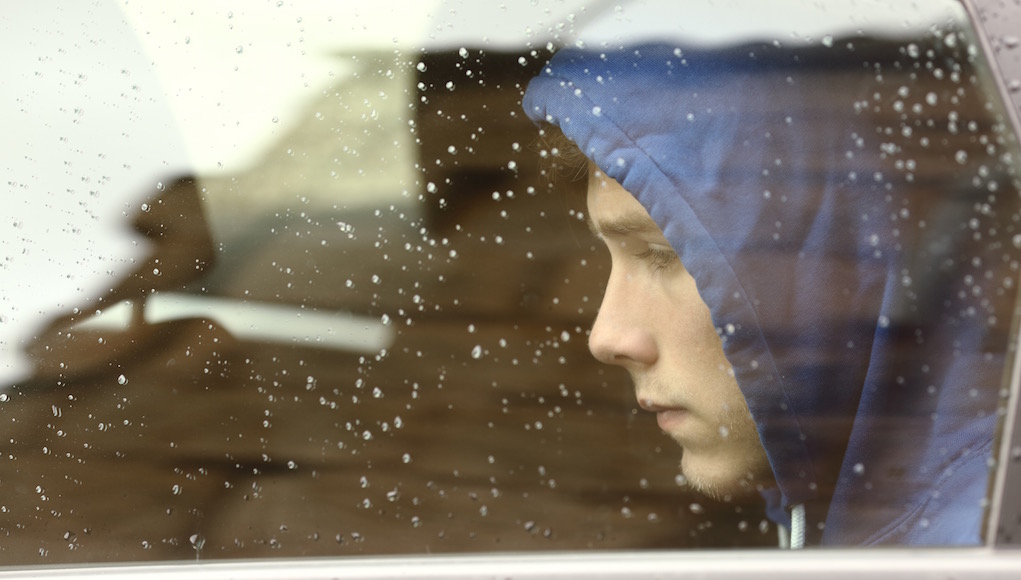
In my work, I see a lot of games, a lot of athletes and a lot of interesting coach and parent behavior. The last one is the topic of this story, because parent behavior is a critical piece in how much young players enjoy golf … and how long they keep playing.
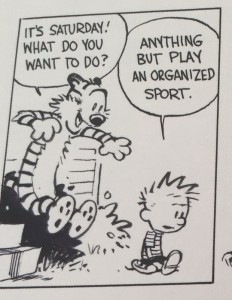
The sad reality is that the majority of young athletes, including young golfers, drop out of competitive sports by the time they reach the age of 14. A study from the National Alliance of Sports tells us that more than 70 percent of young athletes leave competitive sports by that age. Why? It has nothing to do with the game. It likely isn’t the competition, the work involved or the effort required, either. Instead, it is the young people’s greatest fans, their parents — and sometimes their coaches — who take the fun away and make the experience of sports too complicated for the child to enjoy.
Instead of the pure joy of playing and achieving, young golfers get bogged down by heavy expectations, the pressure to win, and other complications introduced by the very adults who are most invested in them playing the sport. This may not be you, but for the sake of organized youth sports, please read on. And if you agree with what’s written, pass this story on.
Egos Run Amok
I’ve run a number of sessions on high performance for young golfers recently; a hot topic is always pressure and how young golfers handle it. Part of the complication is that mom and/or dad are often the biggest source of pressure. They create expectations that might be difficult to reach, and over time, that sucks the fun out of the game for their kids.
Is it really about the kids or the parents’ egos? The kids, with their $300 shoes, top-of-the-line equipment, and bag full of Pro Vs look like mini-professionals, one step from the tour. What starts out as a desire to have their kids be active and play their parent’s favorite game can sometimes shift into something else. Motives change, and often not for the better.
Do You Have a Frustration Gap?
Many parents see their child on the course or the practice tee as what they’d like their child to be, and not what their child actually is. I call this the Frustration Gap. Parents watch their kids perform and the frustration builds … and builds … and builds as the parent waits for the child to reach the performance level the parent hopes to see.
While this frustration is not much fun for the parent, it is less fun for the child, who is constantly trying to live up to the parent’s expectations. Usually, those expectations are unrealistic, and not in line with the child’s abilities or motivations. This tension is a performance crusher, and can lead a child in the wrong direction – sometimes out of the game for good.
The Mini-Van Golf Prison
Is your vehicle a Mini-Van Golf Prison, a place your child is trapped as you express your frustration with his or her performance? While most parents have good intentions for these chats, their budding professional becomes the target for all sorts of emotions felt by the parent while watching their child and expecting more.
What happened out there today? You looked tired… was that it? I’ve seen you play so much better than you did today. What’s wrong?
These questions and comments can begin a spiral of frustration between a young golfer and parent. And unfortunately, these opening lines often lead to deeper criticisms and questions resulting from the parent’s frustration. I really wish I could measure how much confidence the mini-van prison syndrome has destroyed in young players. All I know is it’s a problem, and awareness of your own car rides after the round is something to consider.
Some Ideas to Help
To help you and your young golfer avoid the Frustration Gap and the Mini-Van Prison, and keep them enjoying the game, here are a few ideas to consider.
1. Step back emotionally. Don’t forget this is your child’s life and experience. One of the joys of being a parent is guiding your child through life and enjoying their successes, but it can be taken too far. If you become obsessed with your child’s performance, and find yourself placing unrealistic expectations on them, you need to take a step back.
2. Make car rides positive experiences. Don’t talk about the game in the car. Let the child initiate any conversation related to the game. If they want to share, they will. And make sure to let the child know you are their biggest supporter, and will be there for them whether they win or lose; play well or make mistakes.
3. Praise achievement. Don’t be critical or instructive. Learn to praise achievement and not focus on your child’s limitations. Make sure the child knows you are proud of a great shot, round and attitude.
4. Focus on process and effort. Don’t be too results-oriented. Your priority for your child needs to be that they feel good about themselves and are happy so that they are motivated to play again tomorrow.
5. Let your young golfer do what is right for them now. Don’t push the child based on your desires. Encouraging your child is great, but don’t cross the line and push your child further than he or she wants to go right now.
6. Let coaches coach! Don’t be both the parent and coach. Coaching and instruction both from parents and coaches confuses the child and has little positive impact.
7. Adjust your expectations. Don’t allow your frustration to build. Letting your Frustration Gap build is not helpful for you or the child. A parent who bottles up frustration becomes a ticking time bomb, waiting for an opportunity for the frustration to become uncorked.
8. Every child makes mistakes! Don’t hyper-focus on your child. Parents put their own children under a microscope, and live and die by each movement the child makes. This hyper-focus on your own child — watching their every move — creates a lack of perspective relative to the other kids on the course, and in the game in general.
If your child is one of the chosen few who are talented enough to play college golf, or even make their way into the professional ranks, great. But 99.9 percent of kids won’t go on to do these things. The important thing is to set the table early for these young players to enjoy what is the best game in the world … for a lifetime.
- LIKE328
- LEGIT49
- WOW15
- LOL4
- IDHT5
- FLOP4
- OB6
- SHANK11
19th Hole
Vincenzi: The 8 best prop bets for the 2024 Masters
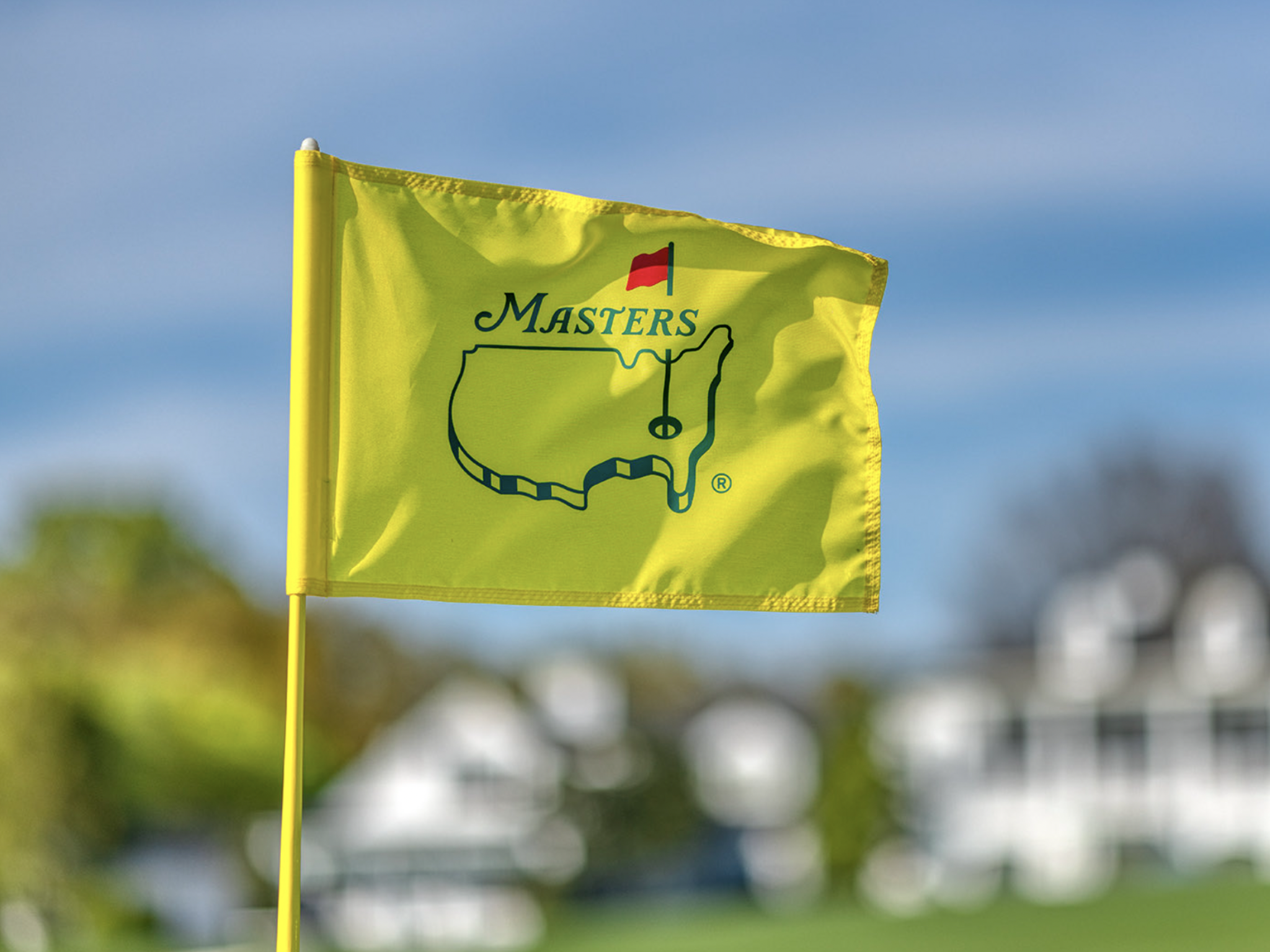
We’ve finally reached The Masters and excitement is at an all-time high. The world of golf has been fractured for the better part of two years, but for a week at Augusta National, all of the outside noise will disappear. All of the best players in the world will be together seeking to make history.
In addition to betting on The Masters champion. This is one of the few weeks of the year where there are so many more markets to explore, with value to be had in plenty of different categories.
Throughout this article, I’ll discuss all of my favorite props and players for the 2024 Masters.
Placement Bets:
Tony Finau Top 5 +750 (DraftKings):
I badly wanted to include Tony Finau in my outright betting selections, but I simply ran out of room on my card. Additionally, it’s slightly difficult to see him hitting the putts necessary to win the Masters on back nine on Sunday. However, I do strongly believe he will play great golf this week at Augusta National.
In his past 24 rounds, Finau ranks 4th in Strokes Gained: Approach is always amongst the best drivers of the golf ball in the game. Back in 2019, Finau had a great chance to win The Masters. I expect him to be hanging around over the weekend once again in 2024.
Gary Woodland Top 20 +550 (DraftKings), Gary Woodland to make the cut -110 (DraftKings):
Last season, Gary Woodland had his best ever finish at The Masters in his eleven tries. The 39-year-old finished T14 and played incredibly steady across all four rounds.
In Woodland’s most recent start at the Texas Children’s Houston Open, he struck the ball incredibly well. He led the field in Strokes Gained: Approach (+8.8) and Strokes Gained: Ball Striking (+10.0).
Gary has been working with Butch Harmon and absolutely flushing the ball both in tournaments and during practice.
Woodland appears to be healthy once again and in a great place physically and mentally. If he can build off his impressive performance at Augusta last year, he can place inside the top ten in 2024.
Additionally, the make the cut number on Woodland seems generous considering the number of players who miss the cut will be relatively small this week. Woodland is striking it well enough to make the cut even if he’s hindered by a balky putter once again.
Thorbjorn Olesen Top 20 +400 (FanDuel):
The Thunder Bear, Thorbjorn Olesen, made his Masters debut in 2013 and finished an incredibly impressive T6 for the week. In the two additional starts he’s made at Augusta National since then, the Dane has continued to be incredibly solid, finishing T44 and T21.
This week, Olesen heads into the week playing some good golf. He gained 3.8 strokes on approach and 5.52 strokes around the green at last week’s Valero Texas Open on his way to a strong T14 finish. Back in January, he won the Ras Al Khaimah Championship on the DP World Tour.
Olesen has the skill set to be successful at Augusta and seems primed for a good performance this week.
Top Nationalities:
Sergio Garcia Top Spanish Player +280 (DraftKings):
I believe Sergio Garcia can get into contention this week with the way he’s striking the ball in addition to his good vibes with a refurbished version of the Scotty Cameron that he used at the 1999 PGA Championship at Medinah.
I am slightly concerned about the emotional letdown he may face after losing in a playoff at LIV Miami, but I believe a veteran and former Masters champion should be able to regroup and focus on an event far more meaningful.
This is essentially a tournament head-to-head with Jon Rahm at +280. While Rahm deserves to be respected this week, the history of the lack of success of defending champions at The Masters is difficult to ignore.
Joaquin Niemann Top South American Player -230 (FanDuel):
While I hate paying this much juice, I don’t see a world in which Joaquin Niemann isn’t the top South American this week at The Masters. Joaco comes in playing better golf than anyone in the world not named Scottie Scheffler and has a serious chance to win the green jacket.
He only needs to beat two players: Emiliano Grillo and Camilo Villegas.
Tournament Head-to-Heads:
Justin Thomas -110 over Collin Morikawa
JT isn’t having his best season but is playing a lot better than he is getting credit for at the moment. In the past three months, there are only six players on the PGA Tour who have averaged 1.7 Strokes Gained: Tee to Green or better. Justin Thomas (+1.7) is one of the six and is currently tied with Rory McIlroy (+1.7).
Morikawa, on the other hand, has been extremely poor with his irons, which is incredibly uncharacteristic for him. I can’t help but feel like something is completely off with the two-time major champion.
Tony Finau -110 over Wyndham Clark
I explained in the placement section why I’m so high on Tony Finau this week. With how well he’s striking the ball, it seems as if his floor is extremely high. I’m not sure if he can make the putts to win a green jacket but I believe he will be in the mix similarly to 2019 when Tiger Woods emerged from a crowded pack of contenders.
Clark is a debutant, and while some debutants have had success at The Masters, it certainly poses a challenge. I also don’t believe Augusta National suits Clark as well as some of the other major championship venues.
- LIKE9
- LEGIT5
- WOW3
- LOL0
- IDHT0
- FLOP0
- OB0
- SHANK3
19th Hole
Vincenzi’s 2024 Masters betting preview: Niemann to play star role at Augusta National
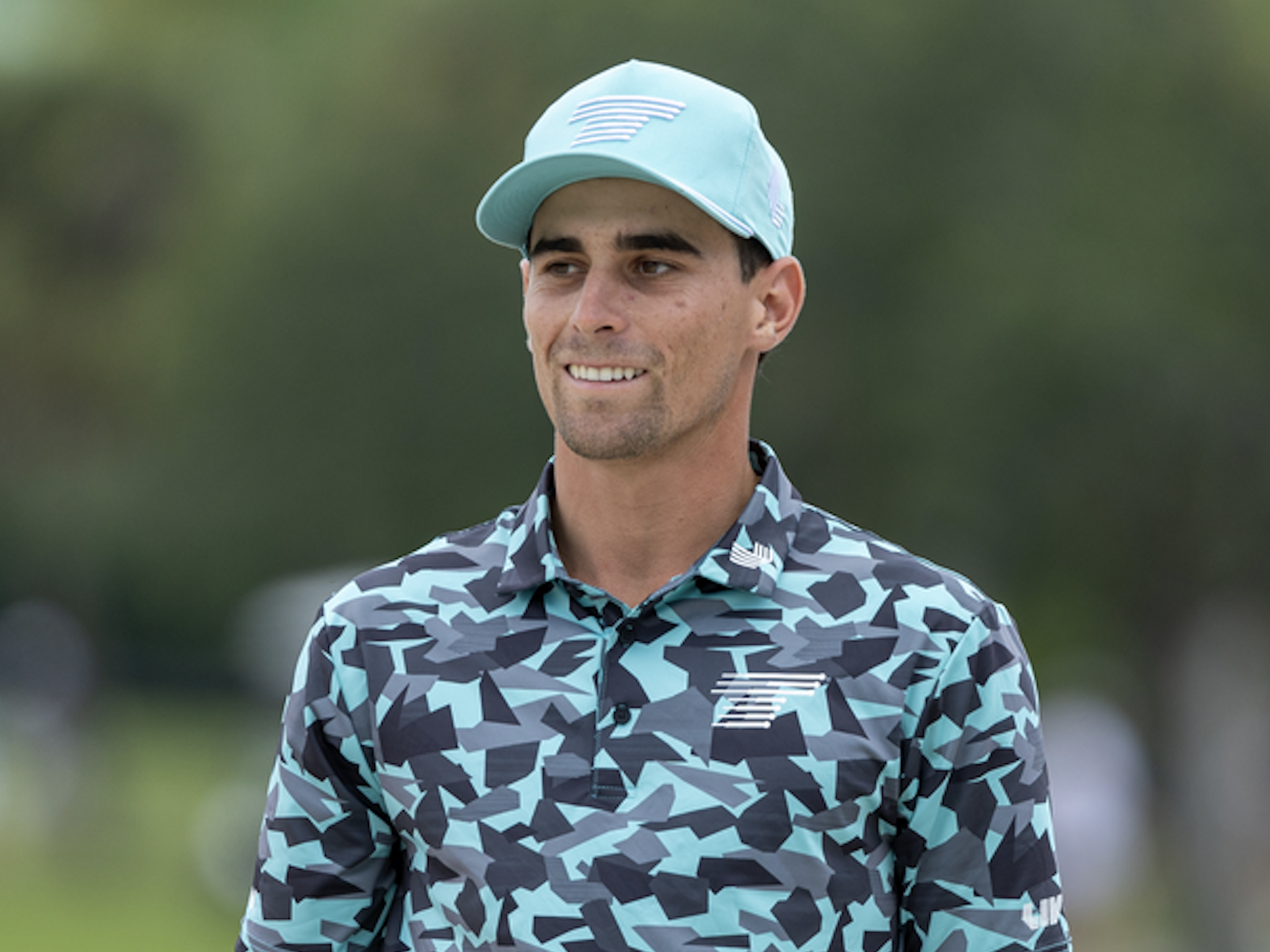
It’s been over nine months since we saw Brian Harman parlay a dominant performance at Royal Liverpool into a claret jug. After another major offseason filled with a feud between the PGA Tour and LIV Golf, talks of a merger, and a multitude of questions regarding the future of the game, the golf world is desperate for all of the best players in the world to come together again for a major championship.
We return to Augusta National with excitement at a fever pitch. Scottie Scheffler has separated himself as the best player in the world heading into the Masters. At the moment, the 27-year-old seems to be an unstoppable force. However, questions about Scheffler’s up-and-down putter once again resurfaced as he missed multiple short putts at the Texas Children’s Houston Open including a 5’11” putt to force a playoff with Stephan Jaeger.
Additionally, a handful of the PGA Tour’s top players such as Justin Thomas, Rory McIlroy, Will Zalatoris, Patrick Cantlay, Tommy Fleetwood and Jordan Spieth make their way to Augusta National with their current form in question.
Plenty of LIV golfers may be up to the task of conquering Augusta, but with so much time in between the last two majors, it’s not always easy to decipher how their games will stack up against Scheffler and co.
Last year, some important changes were made at Augusta National. The par-5 13th (Azalea) was lengthened by 35 yards and now measures 545 yards. Last year, Azalea played as the toughest of the four par 5s, and players averaged 4.74 for the week, which was down from 4.85 in 2022. However, eagles, birdies and bogeys were all up, so the lengthening achieved less pars, which equals more excitement.
Without further ado, let’s get into the course breakdown and analyze some important statistics for Augusta National.
Augusta National is now a 7,510-yard par-72 with lightning-fast Bentgrass greens. The course’s primary defenses are the contoured greens, swirling crosswinds, the topography of the course, which creates uneven lies and the small landing areas that golfers will need to hit to avoid tight run-off areas around the greens.
Past Winners at the Masters
- 2023: Jon Rahm (-12)
- 2022: Scottie Scheffler (-10)
- 2021: Hideki Matsuyama (-10)
- 2020: Dustin Johnson (-20)
- 2019: Tiger Woods (-13)
- 2018: Patrick Reed (-15)
- 2017: Sergio Garcia (-9)
- 2016: Danny Willett (-5)
- 2015: Jordan Spieth (-18)
- 2014: Bubba Watson (-8)
- 2013: Adam Scott (-9)
- 2012: Bubba Watson (-10)
- 2011: Charl Schwartzel (-14)
- 2010: Phil Mickelson (-16)
In this article and going forward, I’ll be using the Rabbit Hole by Betsperts Golf data engine to develop my custom model. If you want to build your own model or check out all of the detailed stats, you can sign up using promo code: MATTVIN for 25% off any subscription package (yearly is best value).
Key Stats For Augusta National
Let’s take a look at the six most important metrics at Augusta National and determine which golfers boast top marks in each category over their last 24 rounds. This should give us a good starting point for building out a betting card.
Strokes Gained: Approach
Approach is historically the most important statistic at Augusta National. The sloping, speedy greens and run-off areas create small landing spots that can be difficult to hit.
Last year, Jon Rahm ranked 6th in the field in Strokes Gained: Approach. Overall, five of the past seven winners at Augusta have ranked in the top 6 in the category. Distance helps, but Augusta National is a second-shot golf course.
Total Strokes Gained: Approach in past 24 rounds:
- Scottie Scheffler (+1.30)
- Corey Conners (+0.99)
- Shane Lowry (+0.88)
- Tony Finau (+0.85)
- Austin Eckroat (+0.85)
Course History
More so than any other course on TOUR, familiarity with Augusta National is crucial. Only one player has ever won the Masters on their first try — Fuzzy Zoeller in 1979. Meanwhile, there are 17 golfers in history who have multiple green jackets.
In most cases, the Masters champion has shown some good form at Augusta in the past. Prior to Scottie Scheffler’s 2022 victory, he finished T19 and T18 in his first two trips to the course. Prior to 2023, Rahm had finished in the top-10 of four of his six starts at The Masters.
Total Strokes Gained: Total at Augusta National in past 36 rounds (per round, minimum eight rounds):
- Will Zalatoris (+2.91)
- Jon Rahm (+2.28)
- Jordan Spieth (+2.22)
- Scottie Scheffler (+2.22)
- Dustin Johnson (+2.01)
- Rory McIlroy (+2.00)
- Hideki Matsuyama (+1.90)
- Justin Rose (+1.85)
- Rickie Fowler (+1.72)
- Russell Henley (+1.60)
Par 4 Scoring Average
Since plenty of players can reach the par 5s at Augusta in two, par-4 scoring becomes more important. The golfer who separates themselves on the par 4s will be able to gain ground on the field.
Par 4 Scoring Average in past 24 rounds:
- Scottie Scheffler (+3.88)
- Chris Kirk (+3.92)
- Jordan Spieth (+3.93)
- Peter Malnati (+3.93)
- Xander Schauffele (+3.93)
Strokes Gained: Around the Green
Golfers with a solid short game tend to fare well at Augusta National. The run-off areas are treacherous, and players will often be scrambling to get up and down.
The majority of players who have won at Augusta National have a great short game and have shown consistent ability to get up and down from tough spots.
Total Strokes Gained: Around the Green in past 24 rounds:
- Hideki Matsuyama (+0.71)
- Scottie Scheffler (+0.66)
- Patrick Reed (+0.61)
- Xander Schauffele (+0.53)
- Lucas Glover (+0.51)
Strokes Gained: Off the Tee
Augusta National is most definitely a second shot golf course. Golfers can get away with a missed fairway here and there, however, it’s important that the misses with driver aren’t too wide of the target or there is serious trouble to be had.
Total Strokes Gained: Off the Tee in past 24 rounds:
- Bryson DeChambeau (+1.04)
- Rory McIlroy (+0.85)
- Scottie Scheffler (+0.84)
- Xander Schauffele (+0.71)
- Ludvig Aberg (+0.68)
Strokes Gained Putting: Fast Bentgrass
The USGA calculates that, on average, the greens at Augusta National are the fastest greens in the country. Three-putting is fairly common at Augusta and golfers must be able to combat the speed of the greens with effective lag putting.
Total Strokes Gained: Putting on Fast Bentgrass in past 24 rounds:
- Justin Rose (+1.43)
- Sahith Theegala (+0.97)
- Min Woo Lee (+0.88)
- Cameron Smith (+0.70)
- Patrick Reed (+0.70)
Statistical Model
Below, I’ve reported overall model rankings using a combination of the six key statistical categories previously discussed.
These rankings are comprised of SG: App (25%); Course History (16%); Par 4 Scoring Average (10%); SG: Putting on Fast Bentgrass (16%); SG: OTT (16%). and SG: ARG (16%).
Last year, Jon Rahm ranked first in this model
- Scottie Scheffler
- Xander Schauffele
- Hideki Matsuyama
- Tony Finau
- Justin Thomas
- Shane Lowry
- Will Zalatoris
- Corey Conners
- Si Woo Kim
- Rory McIlroy
- Stephan Jaeger
- Jordan Spieth
- Chris Kirk
- Keegan Bradley
- Wyndham Clark
- Sahith Theegala
- Russell Henley
- Collin Morikawa
- Matt Fitzpatrick
- Patrick Reed
My 2023 Pick:
Jon Rahm (+950) (FanDuel)
A few months ago, I never thought that I’d be able to say that Rahm would be going slightly under the radar heading into the 2023 Masters. It’s not that Rahm has done anything wrong, but both Scheffler and McIlroy have undoubtedly surpassed him as the scorching hot, super-elite, top of the market betting favorite category.
Since his win at Riviera, the Spaniard has finished 39th at Bay Hill, withdrew at The Players Championship, and failed to get out of the group stage at the WGC Dell Match Play. On the other hand, Scheffler won The PLAYERS Championship and McIlroy finished third at the WGC Dell Match Play.
Rahm has made six starts at The Masters and has come in the top-10 in four of them. The 28-year-old has incredible power off the tee, a requirement at Augusta which always plays longer than the scorecard indicates. He’s also incredible around the greens and ranks third in the field in Strokes Gained: Short Game, which is a combination of around the green play and putting, in his past 24 rounds.
As we’ve seen over the years at The Masters, having the ability to chip and putt your way out of difficult situations is a fundamental aspect of getting it done at Augusta National.
While Scheffler has made a strong case to be viewed as the world’s best player, I still believe that title belongs to Rahm. This will be the year Rahmbo joins the ranks of Seve Ballesteros, José María Olazábal, and Sergio Garcia as natives of Spain to don a green jacket.
2024 The Masters Picks
Brooks Koepka +2500 (DraftKings)
In order to win the 2024 Masters, a player will have to go toe-to-toe with Scottie Scheffler, who’s hitting the ball as anyone in golf over the last two seasons. When building a betting card this week, it’s important for me to choose players that I believe can stare Scheffler down on the weekend at Augusta National. Brooks Koepka fits that bill.
Koepka’s lackluster performance at LIV Miami is concerning, but he’s the type of player who can turn it on quickly during the week of a major championship. Although I’d have preferred, he played well last week, I’ll take the odds discount we got as a result of his most recent results.
Prior to LIV Miami, Koepka appeared to be in solid form. He finished in the top twelve in four of five starts on LIV this season. When it comes to the five-time major champion, it’s well known that he has another gear for major championships. Everything he’s done both in the off-season and during the LIV season is to gear up for the year’s first major at Augusta National.
In his past five starts at Augusta National, the 33-year-old has three top-7 finishes, including two runners-up. The two years when he played poorly (2019 and 2020) were when he was nowhere near 100% healthy. All signs point to Brooks being in a great place physically as we enter major season.
Last year, Koepka was the 36 and 54-hole leader prior to letting the green jacket slip away to Jon Rahm. He used the result as a springboard to win his 5th major at Oak Hill at the PGA Championship.
Brooks enters the week looking to get one step closer to achieving the career grand slam and golf fans would be foolish to rule him out.
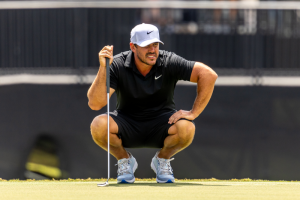
Joaquin Niemann +2800 (BetRivers)
Full disclosure, I bet Niemann the second he was invited to The Masters back in February at +8000. Although the odds have shortened dramatically since then, I can’t pretend that the Chilean isn’t one of the players who has a real chance to win the 2024 Masters.
While I was speaking with Niemann back in March, he told me how much he loves Augusta National.
“Yeah, it’s a place that I love. I’ve been playing good golf. Especially last year, I wasn’t playing my best golf, and I had a good week there and made triple on 11 that kind of killed me a little bit.
I feel like I’m getting more ready and more prepared every time. My game is getting better too. I know that I’m playing good enough to be in that situation that I can have a chance to win the Masters and it’s all about how I react to that situation.
So yeah, I’m going to prepare myself to be ready for that situation if it happens and I can fight for the title on the Sunday which would be awesome.”
As Niemann alluded to, the Chilean was able to have his best career finishes at The Masters (T16) despite not being in the best form. This year, Niemann comes into the week playing better golf than anyone in the world with the exception of Scottie Scheffler. The 25-year-old has won three times since December and has shown the world why he was regarded as one of the games future stars since he was a teenager.
Historically speaking, Joaco’s win at Riviera a few years back seems to be an indicator of potential success at Augusta National. Fourteen players have won at both historic courses including Hideki Matsuyama, Jon Rahm, Phil Mickelson, Dustin Johnson, Nick Faldo, Tom Watson and Ben Hogan.
Niemann has all the shots to be successful at Augusta National. His low stingers will come in handy on plenty of holes down the stretch and he can work it both ways, playing the high draw or the low fade. He also putts best on Bentgrass greens and likes them fast. Whether PGA Tour or LIV, talent will always reign supreme, and I’ll always bet on that talent.
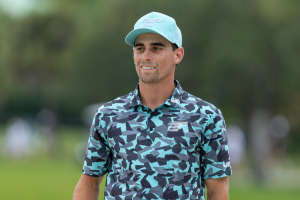
Cameron Smith (+4000) (FanDuel)
Cameron Smith is another player who we should get an odds discount on based off of the results at LIV Miami. Smith was forced to withdraw prior to the second round due to food poisoning. In my opinion, the number has drifted to a place where I’d consider it a “bet the number” play on the talent.
Smith is a contender for the green jacket anytime he tees it up at Augusta National. The Australian absolutely loves the golf course and has four top-10 finishes in his last six trips to the golf course. In both 2020 and 2022, Smith had a real chance of winning The Masters and came up just short, finishing T2 and T3 in those two tries. In his past 36 rounds, he ranks 4th in Strokes Gained: Total per round at Augusta.
In order to be successful at Augusta National, players must be creative around the greens and be shot makers who have plenty of ways to get around the golf course. Cam has all the shots required to be successful at the course at his touch around the greens will continue to serve him well in his hopes for a green jacket.
Smith is arguably the best putter in the world and has the capability to win a golf tournament on and around the greens. He’s already taken down Rory McIlroy at the home of golf on his way to a claret jug and is one of the few players who can stare down any of the world’s top golfers on the back nine at Augusta National.
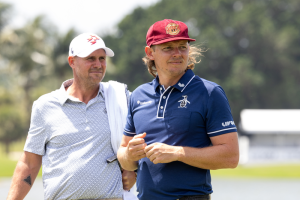
Justin Thomas +4000 (FanDuel)
With how he’s been playing since his 2022 PGA Championship win, you may be shocked to see the name “Justin Thomas” in this preview. However, JT has drifted to a place on the odds board where I believe it’s worth taking a shot on the talent of a two-time major champion in his prime.
It’s not all bad for Thomas this season. He finished T6 at the signature Pebble Beach event, T12 at the Waste Management Phoenix Open and T12 at the signature Arnold Palmer Invitational. In his last 24 rounds, JT ranks 8th in the field in Strokes Gained: Approach, 14th in Strokes Gained: Around the Green and 29th in Strokes Gained: Putting on fast Bentgrass greens.
Despite missing the cut last season, Thomas has played pretty well at Augusta National. He ranks 13th in Strokes Gained: Total in his past 36 rounds at the course. He finished T4 in 2020, T21 in 2021 and T8 in 2022.
I believe the 2024 edition of The Masters is completely wide open. The past few years has been frustrating for Thomas fans, but I believe his peak form may be a bit closer than people realize.
Sergio Garcia +12000 (FanDuel)
Earlier this season, Garcia dueled with Joaquin Niemann before finally losing on the fourth playoff hole late into the night. Despite the loss, the 44-year-old seemed to gain confidence in his game. The results that followed weren’t spectacular, but in terms of his ball striking he’s shown some flashes of vintage Sergio.
At LIV Miami last week, Garcia played well on a massive golf course, losing in a playoff to Dean Burmester. He continued pumped the ball into the fairway and hit massive iron shot after massive iron shot. He also used a refurbished Scotty Cameron that he used in the 1999 PGA Championship at Medinah. The putter served him incredibly well until he missed a short putt on the 18th hole to win the event. Overall, he gained 7.1 strokes putting at Doral.
Sergio Garcia is once again headed to Augusta National with a chip on his shoulder. Of course, having a chip on the shoulder is nothing new for the fiery Spaniard, but this year, the 2017 Masters Champion will arrive at Augusta with his game clicking on all cylinders.
Sergio winning a second green jacket is seemingly an almost impossible feat, but magical things tend to happen on the hallowed grounds of Augusta National.
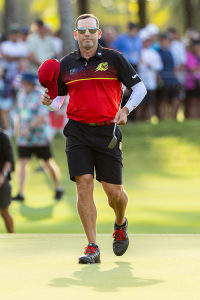
Adam Scott +11000 (FanDuel)
Betting Adam Scott over the past handful of years has been a Masters staple for me, and like many traditions, has been a hard one for me to let go of.
Last week, Scott finished T14 at the Valero Texas Open in a windy and difficult week. I believe the wind will be a major factor this week at Augusta National, and the more difficult the tournament plays, the more I favor Scott. Scott also ranks 5th in his past 24 rounds on Strokes Gained: Putting on Fast Bentgrass and has the short game these days that could help him contend in a major.
Since his win in 2013, Scott’s history at The Masters has been spotty. He has some poor finishes alongside a T9 in 2017 and a T18 in 2019. He’s been playing some solid golf this season, finishing T8 at the Waste Management Phoenix Open and T19 at the Genesis Invitational.
(All photos in piece belong to LIV Golf)
- LIKE35
- LEGIT22
- WOW8
- LOL2
- IDHT0
- FLOP6
- OB2
- SHANK22
Opinion & Analysis
The 22 players who can win the Masters
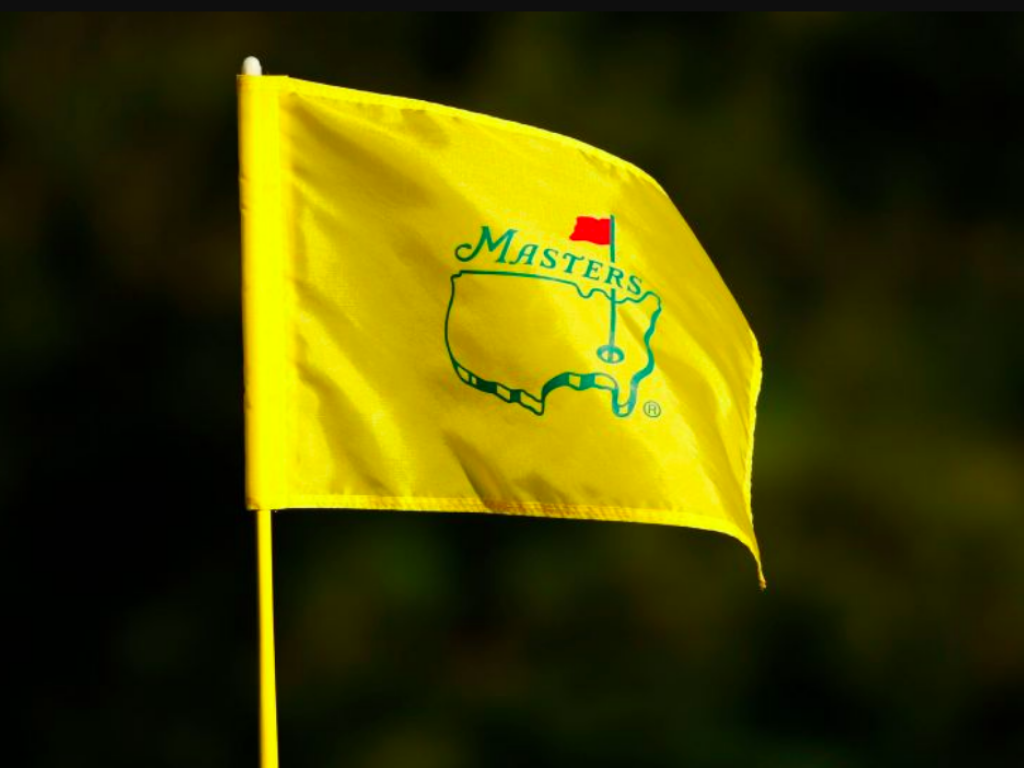
Since 2013, I have created a filtering process to help determine the players who are most likely to win the green jacket based on criteria that have strongly predictive outcomes to success at Augusta. The list of players that can win at Augusta is usually filtered down to 20-24 players and in that time I have correctly shortlisted every Masters champion.
This includes last year’s winner, Jon Rahm. Even though Rahm essentially walked away with the green jack and did not make it very close, there were some close calls on top of the leaderboard as I had filtered out Phil Mickelson (t-2nd) and Patrick Reed (t-4th) as the LIV Tour is still behind on providing advanced analytics for their tour. Russell Henley was also filtered out and finished t-4th, five strokes from Rahm’s winning score of 276.
If you’re watching at home, the “critical holes” that will likely determine the top finishers will be holes No. 7, 8, 11 and 13. The 11th hole is projected to be the most critical of holes as over the past five Masters the top players have gained nearly a 1.5 strokes for the tournament on that hole alone.
Just like last year’s column I will get the LIV Tour players I’ve filtered out of the way. Since LIV Tour does not provide ShotLink or Trackman data, it’s more of a guessing game as to how certain LIV Tour golfers are playing. I did utilize recent performance as well as performance at Mayakoba and Doral as they were two former PGA Tour courses that have some semblance of crossover to playing Augusta.
Phil Mickelson
Thorbjorn Olesen
Charl Schwartzel
Cameron Smith
Bubba Watson
Admittedly Cameron Smith and Phil Mickelson are hard to leave out, but both have not played well as of late.
Next, I filtered out the amateurs and all first-time professional attendees. The Masters has only been won three times by a first-time attendee: Fuzzy Zoeller was the last to win in 1979. Prior to Zoeller though, it was Horton Smith in the inaugural event in 1934 followed by Gene Sarazen in 1935
Ludvig Aberg
Akshay Bhatia
Wyndham Clark
Eric Cole
Santiago de la Fuente (a)
Nick Dunlap
Austin Eckroat
Stewart Hagestad (a)
Ryo Hisatsune
Lee Hodges
Nicolai Hojgaard
Stephan Jaeger
Jake Knapp
Christo Lamprecht (a)
Peter Malnati
Denny McCarthy
Grayson Murray
Matthieu Pavon
Adam Schenk
Neal Shipley (a)
Jasper Stubbs (a)
Out of the first time invitees the data likes Ludvig Aberg and Eric Cole to play the best at Augusta National.
I also filter out old Masters champions that I do not believe can get into contention anymore.
Fred Couples
Jose Maria Olazabal
Vijay Singh
Mike Weir
Tiger Woods
Recency has a strong predictive value for player performance and missing the cut in the event in the prior week greatly reduces the likelihood of winning the following week compared to players that miss the cut, take a week off, and then play the following week. Therefore I filter out all players that missed the cut at the Valero Texas Open last week.
Byeong Hun An
Harris English
Rickie Fowler
Ryan Fox
Zach Johnson
Tom Kim
Erik van Rooyen
Camilo Villegas
I will also filter out the players that have never made the cut at the Masters:
Kurt Kitayama
Adrian Meronk
A Tradition Unlike Any Other…
Augusta National has traditionally favored longer hitters and even moreso in the past 20 years of the event. Of course there has been exceptions as in 2007 the short hitting Zach Johnson ended up winning the event.
Critics of my filtering system point out Johnson’s victory as a case for short hitters being able to win at Augusta, but they neglect the fact that Johnson’s victory came in historically low temperatures in the 40’s with wind gusts reaching 35 mph. That made the par-5’s almost unreachable in two shots and the course stressed wedge play and short game around the green where Zach had a sizable advantage.
It is projected to rain early on Thursday and then the weather is supposed to be sunny and warm for the rest of the week. It depends on how quickly the course dries up, but if it does dry out fairly quickly that will give the longer hitters the advantage as they will be able to reach certain par-5’s in two shots that the shorter hitters cannot reach if they don’t hit a quality tee shot and there may be par-5’s that some of the long hitters can reach in two shots with a short iron. Therefore I will filter out the following players due to a lack of distance off the tee:
Corey Conners
Lucas Glover
Emiliano Grillo
Brian Harman
Si Woo Kim
Chris Kirk
Shane Lowry
Colin Morikawa
JT Poston
Justin Rose
Sepp Straka
Out of these players the data likes Lowry and Morikawa the most. Both have good history at Augusta and they both just narrowly missed the distance benchmark set in the filter and both are excellent long iron players.
Last year I created a new formula to better determine ball height as Augusta has historically not taken too kindly to a low ball flight. Out of the 5 players filtered out for low ball flight using the new formula the best finish was only t-29th by Si Woo Kim. This year I’ve filtered out the following players.
Matthew Fitzpatrick
Sungjae Im
Luke List
Joaquin Niemann
Justin Thomas
Every year I filter out the poor performers on approach shots from 175-225 yards as Augusta National puts a lot of stress on those shots. Last year I filtered out nine players and three of them missed the cut with only Jordan Spieth finishing in the top-15 (t-4th) as the rest of the players were never a threat.
Here are the golfers I’m filtering out due to poor play from 175-225 yards:
Patrick Cantlay
Cameron Davis
Jason Day
Tommy Fleetwood
Russell Henley
Max Homa
Rory McIlroy
Jordan Spieth
Nick Taylor
Rory had a nice outing at the Valero Texas Open and hit his irons better there, but appears to be struggling with a leftward miss. Other than that, Rory still has the game to win his first green jacket. Henley is usually one of the better iron players on Tour, but he has struggled this season from 175-225 yards and is a short hitter anyway.
I will also filter out Danny Willett as he is coming off injury and making his comeback at the Masters.
That leaves the 22 players that can win the Masters:
Keegan Bradley (150/1)
Sam Burns (60/1)
Bryson DeChambeau (25/1)
Tony Finau (50/1)
Sergio Garcia (100/1)
Adam Hadwin (175/1)
Tyrrell Hatton (80/1)
Viktor Hovland (35/1)
Dustin Johnson (40/1)
Brooks Koepka (16/1)
Min Woo Lee (70/1)
Hideki Matsuyama (20/1)
Taylor Moore (300/1)
Jon Rahm (12/1)
Patrick Reed (80/1)
Xander Schauffele (18/1)
Scottie Scheffler (4/1)
Adam Scott (100/1)
Sahith Theegala (50/1)
Gary Woodland (250/1)
Cameron Young (50/1)
Will Zalatoris (35/1)
Here’s my personal top-10 picks:
Keegan Bradley (150/1)
Sam Burns (60/1)
Bryson DeChambeau (35/1)
Tony Finau (50/1)
Viktor Hovland (35/1)
Dustin Johnson (40/1)
Hideki Matsuyama (20/1)
Jon Rahm (12/1)
Xander Schauffele (18/1)
Scottie Scheffler (4/1)
- LIKE186
- LEGIT75
- WOW24
- LOL25
- IDHT5
- FLOP16
- OB7
- SHANK67
-
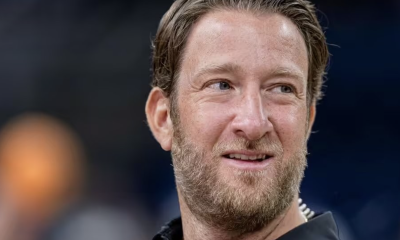
 19th Hole4 days ago
19th Hole4 days agoDave Portnoy places monstrous outright bet for the 2024 Masters
-
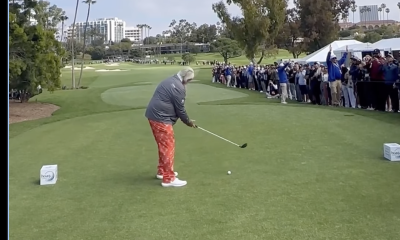
 19th Hole3 weeks ago
19th Hole3 weeks agoJohn Daly stuns fans into silence with brutal opening tee shot on PGA Tour Champions
-
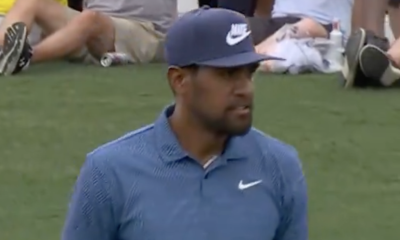
 19th Hole2 weeks ago
19th Hole2 weeks agoThings got heated at the Houston Open between Tony Finau and Alejandro Tosti. Here’s why
-
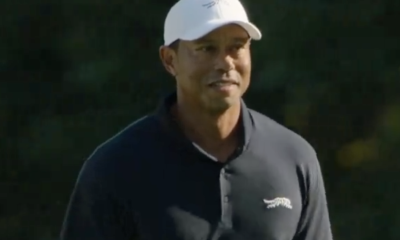
 19th Hole5 days ago
19th Hole5 days agoTiger Woods arrives at 2024 Masters equipped with a putter that may surprise you
-
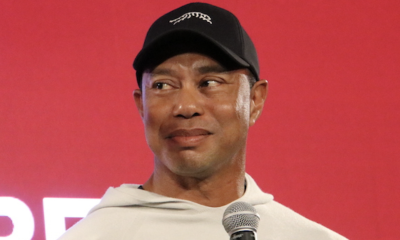
 19th Hole1 week ago
19th Hole1 week agoReport: Tiger Woods has ‘eliminated sex’ in preparation for the 2024 Masters
-
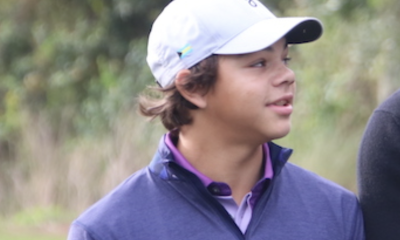
 19th Hole3 weeks ago
19th Hole3 weeks agoCharlie Woods finds it tough going on American Junior Golf Association debut
-
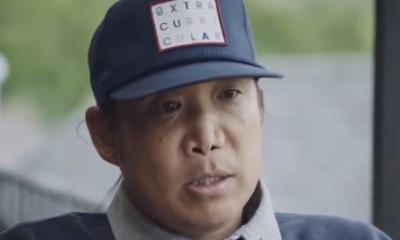
 19th Hole2 weeks ago
19th Hole2 weeks agoAddiction, spinal fusion, and scam artists – Everything Anthony Kim revealed in candid interview with David Feherty
-
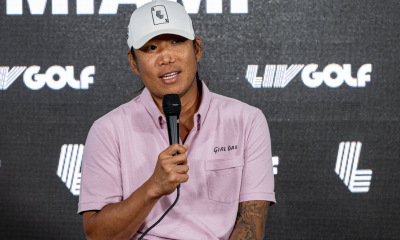
 19th Hole1 week ago
19th Hole1 week agoAnthony Kim says doctors told him that he ‘may not have much time left’ ahead of LIV return

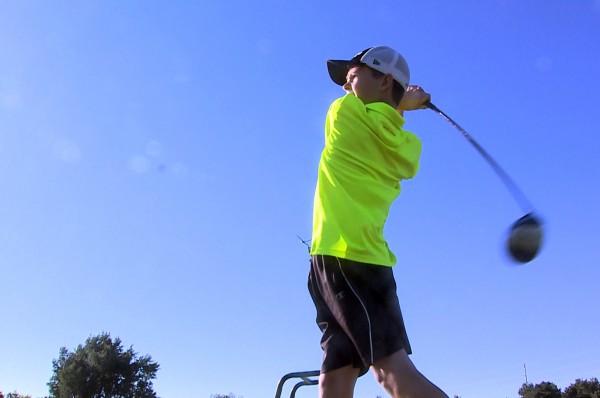












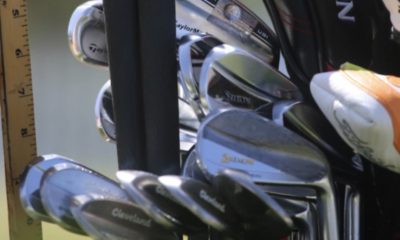



golfraven
Jun 3, 2016 at 4:07 pm
I usually step away when my 2.5 years old one starts to throw his clubs in the air. Danger especially when at home. Other then that I love to see him practice just out of his own will and just enjoy watching him do it. When I try to show him something he goes bananas so I rather don’t get involved as he knows best.
Armypilot84
Jun 2, 2016 at 8:21 am
I think this is a really interesting article. I completely agree with the idea of “getting out of the way” when it comes to a young child playing golf. Golf is an incredibly hard game that I truly believe in my heart that no one is naturally good at. You have to love the game in order to want to get better. I only take me 5 year old son to the range when he asks me to go, and while there I do not try to instruct his swing. We play games where he tries to hit targets. I have only taken him a handful of times to go play 9 with me in the evenings and when we go I have a strict “No Frown” policy. I do not focus on his game at all, but his attitude. I give him one “mulligan” when it comes to throwing a fit or getting upset after hitting a bad shot. After that we go home if he does it again. It sucks wasting the $40+ in greens fees after only 2-3 holes, but it seems to have kept him yearning to play more. I just want him to have fun putting the ball in the hole because that is what the game is all about. I don’t care how it gets there.
John Haime
Jun 2, 2016 at 1:07 pm
Thanks for sharing your experience. Nice approach you have. Some fundamental instruction combined with allowing the young player to take ownership of the experience should lead to fun and great results.
Dr. Dormie
Jun 1, 2016 at 1:26 pm
John, your advice for dealing with the interfering, hovering parent of juniors is sound. I watch it all the time at a local range where mothers and fathers can’t let the kid practice without cleaning his/her clubs, teeing up the ball, taking videos, and playing the part of a coach in instructing. It is oppressive in its smothering of the child and makes the game way too serious at way too young an age.
In terms of your qualifications, please be sure you do not represent or insinuate you are credentialed, educated, trained or licensed as a psychologist in your articles or website. Being inspired by Daniel Goleman and his concept of “emotional intelligence” is just one small part of the pie. I say this as a clinical and sport psychologist who has been in practice for 40 years.
John Haime
Jun 1, 2016 at 2:39 pm
Hi Dr. Dormie,
Thanks so much for your comments on the article – much appreciated.
And, thanks for the advice and placing me a convenient little box LOL.
FYI – respectfully, sport psychology is a very small piece of working with athletes and high performance. I use some basic principles that are widely available to all, but getting sustainable results with athletes and performers reaches far beyond the narrow reach of traditional sport psychology. Psychology is about fixing problems, I build and develop athletes, performers and people – very different approaches.
My client list, including some of the world’s leading athletes, suggests that I probably know what I’m doing. It probably extends beyond inspiration from Dan Goleman (:
Dr. Dormie
Jun 1, 2016 at 8:46 pm
John, I did not place you in a “box.” I simply asked you to be careful in how you represent yourself. Your comments about sport psychologists are inaccurate. You say “psychology is about fixing problems.” When it comes to sport psychology, this couldn’t be further from the truth. Clinical psychology is about fixing problems–not sport psychology. Ask any respected golf psychologist if what he’s/she’s doing is “fixing problems.” You sound a bit defensive, referring to your client list, but I guess “giving you advice” was asking for some defensiveness. So, I won’t pursue this any further.
John Haime
Jun 2, 2016 at 9:22 am
thanks Dr. Dorrie.
I don’t feel the response is a defensive one – but when someone questions my abilities to do what I do – I like to respond and explain. The idea here is to comment on the article – not on the abilities or credentials of the writer.
I refer to my client list and results only to point out that’s all that really counts in the real world. Credentials get your foot in the door – but then you must prove you can actually help people and get results. I hire sports psyches and many find it difficult to make the transition from the classroom to the locker room – they are night and day.
And, my point was clinical psychology is fixing problems. Working with athletes re High performance is coaching – identifying a gap and closing it. Traditional sport psychology can be one tool in closing that gap.
Hope you keep reading and commenting!! Would love to hear your ideas on helping athletes offline.
Cheers!
emerson boozer
Jun 1, 2016 at 4:34 am
Great article. I happen to practice the day of the junior close open. In the parking lot was kids and their drivers (no kidding) and/or dads getting out all their new gear and own pull carts, etc…
Then, the bus pulled up and all the kids who used the donated gear came running off yelling and screaming. The range was a zoo.
I compete with our junior club champ on our travelling team and he came over and said hello. I asked him wasn’t it great to be able to play with his friends? He said he had no friends and liked playing with me (i’m 35 years older). The sadness on his face. My heart broke.
He made full ride scholarship in the states and his father moved to the states off campus. I hate to think about it.
Jon
Jun 1, 2016 at 1:59 am
Thanks for the article. It’s very much along the lines of those I’ve read before about sports parents, and with golf in particular, falls into the “early specialization leads to burnout and hinders potential” genre. The issue I have (sorry!) is that these all start with the basic premise that kids drop out of sports by the time they are 14 because their parents were overbearing (“no fun”), or the kid is burned out from too much of one sport. But those conclusions, upon which the entire rest of the articles are built upon, are Never backed up with any evidence or data. In my experience with junior golf (going on roughly 20 years), I can’t think of Any competitive golfers (those who had some dedication to the game) who quit the sport for either of these reasons. The very few that I know of that did stop did so because they wanted to play a different sport or spend more time on their academics. As a lifelong athlete, my observation is just the opposite – the biggest reason kids, and adults, drop out of golf is because they suck at it….sucking is no fun, regardless of your age. Playing well is tons of fun, regardless of your age. Playing decent golf is hard. It’s one of those sports where parents often play a critical role in helping their kids not suck. Whether it’s through teaching them or making sure they get appropriate instruction. My take is that I’d like to see articles written from that perspective and help parents be better golf parents (and coaches if that is their chosen role in the relationship). In short, parents who dedicate the time and energy it takes to develop or support the development of a junior golfer should be celebrated, not ostracized, unless you have some actual peer reviewed data that proves otherwise. Telling parents to “Get Out of the Way” …not the best way to begin the conversation.
John Haime
Jun 1, 2016 at 1:30 pm
Thanks for the comments Jon – appreciated. Interesting experience you have with young golfers.
Give the National Sport Alliance a call and they will give you data and stats to support the numbers in the article. There are other youth sport groups that also have data.
I understand your thoughts. My experience, working with young athletes everyday is I often hear that “mom and dad put too much pressure on me and it’s not fun.” It’s more prevalent than you might think. Often parents have a blindspot – think they are not applying pressure – but they are in the view of the child. As soon as that anxiety creeps in to the child’s experience – other options become more attractive. Wondering if you ever talked to the kids and asked them the REAL reasons why they left? In the article I am primarily referring to competitive kids who have some (or their parents have) some ambition for them to attain a level in the game.
I completely agree that adults drop out of the game because of ability. That is an article for another day as many adults go in without a plan, have unrealistic expectations, underestimate the commitment needed to develop proficiency, get frustrated – and quit. But, in my experience, that is not the case with kids. If parents drop them off at the course and expose them to some good instruction, they typically become quite proficient at the game. As you know, kids pick up everything quicker than adults.
As mentioned in the article. Every parent does not short circuit the experience for kids. But, the article is written to create awareness for parents who do.
“Get out of the way” is direct, but the reality is the parents do get in the way of the experience. It’s important to ensure kids own their own sport experience and not have parental expectations and adult values hanging over them to prevent them from expressing themselves.
The conversation re: team sports is different and much more complicated.
Raven
Jun 1, 2016 at 5:22 pm
Brilliant article – I agree that overbearing parents can make things less fun and push some kids away, but how realistic is this as being a significant reason? I recall my old Japanese karate sensei saying that most people left a sport either as a beginner, or when they reached a level where they were ready to become really good (often in their mid to late teens). Both levels required an extra step up in effort and also filtered out those who were simply not able to progress further. That sensei was also considered an authority in his field. So are these parents actually pushing their kids away, or just making it more appealing to leave at a particular time? Respectfully I completely agree that positive reinforcement will help those who do pursue a sport to a highly skilled level, and I don’t think hyper-focussed parachute parents are good for any child’s life development. I do however see kids leaving at certain competitive levels regardless of parent frustration level.
John Haime
Jun 2, 2016 at 9:47 am
Nice comments Raven.
Yes, agree kids leave for a variety of reasons. But, sport has changed with highly competitive focuses in all sports. College scholarships and the huge opportunities have created a more hyper focus on results – by parents.
Karate etc. may be a bit different from the traditional sports as the “end game” in activities like Karate do not normally lead to large payoffs like traditional sports softening the push and ownership from parents.
Thanks again for the contribution to the conversation.
John Haime
Jun 1, 2016 at 2:51 pm
Hey Jon,
Thanks for the comments – great to get different perspectives.
A few thoughts …
Give National Sport Alliance a call and you can gather the data. There are also other sources that the NSA can recommend.
“Get out of the way” is direct – but exactly what parents must do to allow the kids to own their sport experience and fully express themselves. Parents do “get in the way” of the experience and take ownership themselves.
Just wondering if you have talked to the kids and understood the REAL reasons they are leaving? Other sports and academics are convenient reasons and acceptable – but I think if you really spoke to the kids – you might find something different.
Agree – adults quit because they find it too hard. They often don’t have a plan, expectations are too high, don’t realize the time commitment, get frustrated and may quit. But, kids pick it up easily – and if they have good coaching – I don’t see them leaving because it is too difficult.
thanks again.
Snoopy
May 31, 2016 at 3:21 pm
This is the most unshankable article around. Something great I’ve realized totally outside the context of competitive sports is that good performance can come with hard work, but GREAT performance comes when the work feels like fun. If you’re not having fun on the golf course, parent or player, you should probably find something more productive to do with your time.
John Haime
May 31, 2016 at 4:44 pm
Great comment Snoopy – exactly right. Enjoyment and passion are absolute requirements for great and sustainable performance.
Thanks for contributing!
Alan
May 31, 2016 at 1:13 am
Great article. As a parent myself of 2 young boys who play golf I see this happening a lot. I’ve had to learn to step away and let them get on with it without them worrying what my reaction will be as a result of a bad score or shot! Let them enjoy it and let them have the freedom to keep playing and enjoy themselves on the course!
John Haime
May 31, 2016 at 9:26 am
Great approach Alan – I expect the boys will be playing for awhile!
Bernard
May 30, 2016 at 7:14 pm
I have a son who plays AAU basketball, a lot of what is written here I wholeheartedly agree with. When my son is at practice, I hit the local range to work on golf, so I am there, 5-6 hours a week. I have seen several parent/kid sessions, where at practice the “adult” is hyper coaching and even berating a young kid. In all cases the kid looks miserable. When the fun is gone, the kid will follow it off the the course. I have expectations as a parent, they are work hard and have fun, I try to maintain those twin goals without alienating my child with result based expectations. Feed their passion, do not kill it with trophy dreams. The prize is a well adjusted kid who feels loved.
John Haime
May 31, 2016 at 2:56 pm
Yes – excellent comment Bernard – the article is transferable to all sports. I work in many sports now and see the behavior in all sports. Your last line really is the goal – hoping they also learn lessons from the games that are transferable later on.
Thanks!
8thehardway
May 30, 2016 at 9:37 am
Don’t tell me how to manage my 9 y/o protege, she & I hustled my friends for 350 last weekend and it woulda been double if she made that last putt, but she’s developing the yips; she has got to learn to cope with cigar smoke and swearing if she’s gonna make competitive golf her life.
Instead of listening to this garbage I subscribed to Byung-holio Wei’s newletter – expensive, he’s got the right perspective and I’m gonna spring for a brace for her blown out knee and some Adderall; Byung thinks they don’t drug test kids under 12 so that’s 3 more years of smooth sailing until I sign her up for the men’s John Deere Classic, and if she wins the tractor-pull and the golf tournament all the time I spent as her daddy/caddy, coach and manager will be worth it.
John Haime
May 31, 2016 at 9:23 am
Very good!
KK
May 30, 2016 at 12:37 am
These parents are the definition of arrogance. If the kid is trying, that’s all you can ask. If the kid isn’t, he/she shouldn’t be playing anyway.
WolfWRX
May 29, 2016 at 9:08 pm
Great article. I need to print this off and pin it on my fridge as a reminder to myself. Thank you.
Nick
May 29, 2016 at 6:58 pm
Good advice- interestingly the best female golfers I work with are the ones this article is written towards.
Best for the masses might not be best for the best.
I also have doubts that this is the reason why 70% of kids stop playing organized sport. I stopped playing hockey and my parents were great. You don’t have to hate your parents to have other interests
Nick
May 29, 2016 at 6:52 pm
There is some good advice here- interestingly the best female golfers I work with are the ones this article is written at.
Best for the masses might not be best for the best.
I also have doubts that this is the reason why 70% of kids stop playing organized sport. I stopped playing hockey and my parents were great. You don’t have to hate your parents to have other interests
John Haime
May 30, 2016 at 2:17 pm
Thanks for the comment Nick – good ones. Agree many parents are great and provide a nice environment for the kids to enjoy sports. And, there are many different reasons why kids move away from competitive sports – but when they stop having fun and get tired of the adult values – they are much quicker to turn their heads in other directions. Unfortunately, today, there is a likelihood that the parents own the kids’ sport experience – and not the kids who are playing them.
CD
May 29, 2016 at 2:34 pm
“but we want to keep them playing so it becomes a lifetime interest and passion.”
Why do we???? And if we want them to, and not them want to; then you’ve lost ‘your’ goal before you’ve started anyway.
If people are really doing the points you listed above, don’t be surprised when little Jimmy discovers girls and motorbikes. Or gets a career. Or simply doesn’t want to hang around with dad who is playing a deeply uncool game.
Having to consider, or reconsider any of these points says everything about the parent than the child. This is written in a competitive context; so it’s the parent that has the ego, the insecurity they were never good enough; and is trying to live their thwarted – and unrealistic – dreams vicariously. It’s just about the most selfish thing you can do; try and restrict someone’s freedom of choice and liberty.
John Haime
May 30, 2016 at 2:01 pm
Hey CD – thanks for the comments …
Understand what you are saying.
I think, simply, the goal is to give the kids the opportunity to fall in love with the game – and continue to pursue it. We all know the benefits of the game – and introducing adult values too early in the process can discourage kids away from the game. Agree, kids will leave the game for a variety of reasons, but there’s a much better chance they’ll keep playing if they own it themselves, they have fun and we allow them to discover the many benefits.
M smizzy
May 28, 2016 at 5:08 pm
Italian sparkeling water with lime twist, Truffle fries cooked in duck fat, and a Kobe burger medium?
Forsbrand
May 28, 2016 at 1:06 pm
I have watched some quite disgusting parents at junior coaching “Come on Caleb show them your Tiger stinger”. Yeh he’s 8 years old can barely swing the club!! Absolute mug of a parent and often a high handicapper trying to relive his youth through his child. T
HE sort of guy you just wanna grab and shake!!
Also you’ve got the father that always plays golf with his son in competitions, you know marks his card and low and behold the teenager shoots a super low score, 4 shots lower than the club champion could possibly shoot, yes folks the Magic Marker Brigade! They’ll do anything to get there son noticed / handicap down so they get in that college team.
Leave kids alone, let them develop naturally, don’t force the issue, they might just be happy playing to a 28 handicap casually having fun!
bart
May 28, 2016 at 12:00 pm
You’ve missed one big reason when diagnosing the “problem” of why kids leave sports in their teens: some kids would rather do something else. Music, art, culture, reading, work, being with friends, enjoying nature- there is so much else to do other than chase a ball around.
So maybe the problem is that you think there is a problem with kids not playing sports?
John Haime
May 28, 2016 at 1:01 pm
Thanks Bart – agreed.
But, I think you’ve missed part of the point of the article.
If the kids are playing – there’s no reason why we can’t keep them playing with the right motivations. Kids want to have fun and they turn to the things you mention because often they are frustrated with golf/sport – it’s not fun anymore.
Agree there are lots of things to do – but to keep kids playing – we have to provide the great environment. I think it’s great to encourage other interests – but we want to keep them playing so it becomes a lifetime interest and passion.
Thanks for the comment!!
Rb
May 29, 2016 at 10:34 am
How about this: if the kids are good at it, they’ll play anyway. If they feel they’re good at something else and want to do that other thing – then the Parent is a douche for pushing it on the kid in all the wrong ways.
M smizzy
May 28, 2016 at 11:57 am
Excellent article. Focusing on the positives and building a long term appreciation of the game and its ability to build
Character and etiquette should be first priority for the youngsters. My best experiences have been whacking it around with friends and just enjoying the game and fellowship. These have also been some of my best rounds. Respect the challenges of
The game.
John Haime
May 28, 2016 at 1:05 pm
Great comments smizzy – your point about the challenges of the game is a great one. So much to learn from golf – so we want to keep kids in the game and learn those lessons.
I am all for encouraging kids to do other things and be well rounded – but pushing them out of the game at an early age really subtracts something that can bring them joy and value over a lifetime.
Bert
May 29, 2016 at 8:18 am
Great comments – I enjoy seeing kids playing golf with other kids.
Just recently watched the NCAA Women’s National Championship and all I could think about was the coaches interfering with play. I kept thinking, “get the heck out of there and let the girl putt.” Coaches and parents are good for the sport as teachers, motivators and hopefully mentors, but when it comes time to play, let them play.